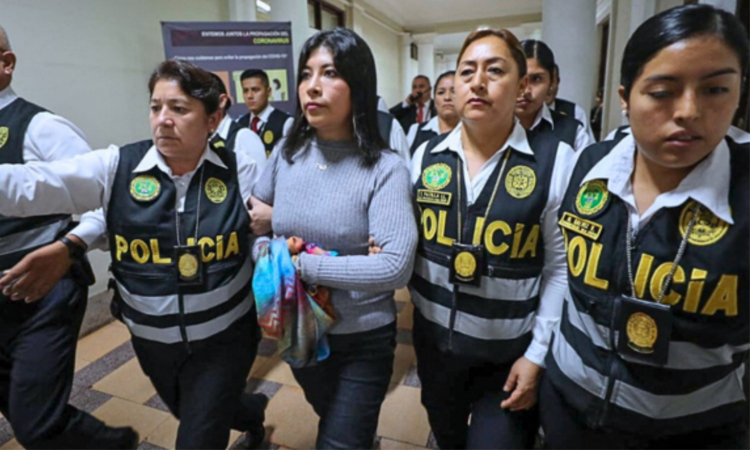News Flash
News Flash

LIMA, Nov 22, 2025 (BSS/AFP) - A Peruvian court issued an international arrest warrant Friday for former prime minister Betssy Chavez who has taken refuge at Mexico's embassy in Lima as she awaits trial for her alleged role in a 2022 coup attempt.
Chavez, 36, was prime minister under president Pedro Castillo, who was ousted in December 2022 for trying to dissolve Congress in what has been categorized as an attempted coup d'etat.
Relations between Lima and Mexico deteriorated sharply over the removal of Castillo, a former rural schoolteacher and trade unionist dubbed Peru's "first poor president."
Back in December 2022, Castillo was on his way to the Mexican embassy in Lima to request asylum with his family when he was arrested and charged with rebellion and abuse of authority.
Mexico granted asylum to his wife and children.
Chavez was charged along with Castillo, and the pair went on trial in March.
While Castillo has been in preventive custody since his impeachment, Chavez was released on bail.
She took up asylum earlier this month while authorities evaluate a request for her safe passage to Mexico.
Peru broke diplomatic relations with Mexico, saying the asylum granted to Chavez constitutes interference in its internal affairs. Both countries recalled their ambassadors.
- Police presence boosted -
Prosecutors are seeking a 25-year prison term for Chavez for allegedly participating in Castillo's plan.
For Castillo, they want a 34-year sentence.
Friday's court ruling also ordered five months of pretrial detention for Chavez after her arrest, saying she was a flight risk.
After the warrant was issued, police tightened security around the Mexican embassy in Lima.
National police chief Oscar Arriola ruled out any incursion, telling reporters "we respect the right to asylum or refuge... We comply with the norms established in international standards."
Prime Minister Ernesto Alvarez also underlined that Peru "respects international law and is not capable of exercising violence... and much less breaking international laws regarding the immunity of diplomatic premises."